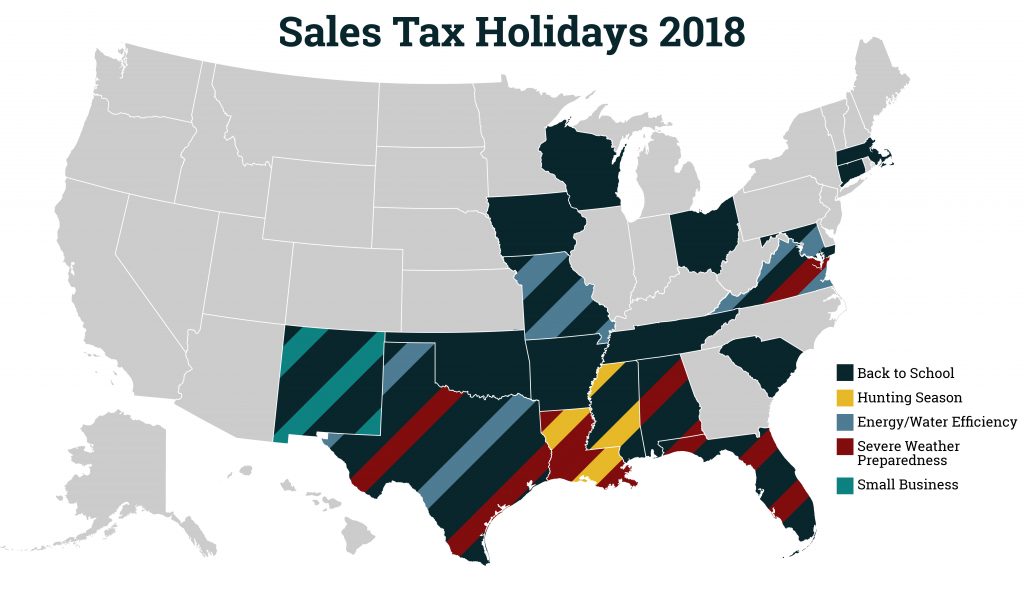The best holiday vacations are often those that involve a little bit of planning ahead of time to ensure that they’re enjoyable, affordable, and positive experiences. The worst are often the opposite: poorly thought-through ventures that cause more stress than they relieve, cost more than they need to, miss out on good opportunities, and leave us wondering why we bothered at all. State sales tax holidays, our newly updated policy brief shows, are the equivalent of the bad kind of holiday vacation: tax policy that sounds nice at first but ultimately cuts corners, wastes money, precludes better options, and leaves states worse off than they would be without them. Unfortunately, while several states have wised up about sales tax holidays in recent years, 18 states will fall for the superficial attraction of these tax policy gimmicks in 2018.
As our brief outlines, sales tax holidays are poorly targeted and wasteful relative to other policy options. Though the holidays are advertised as beneficial to families operating on tight budgets, retailers can plan ahead to raise prices and increase their profits during these holidays, knowing that the state will be encouraging people to shop during those periods. And it is in fact higher-income people who are better able to time their shopping to coincide with the best holiday deals. Overall, the holidays provide negligible amounts of savings to most families, fail to effectively target the families that need the help most, and provide no boost to local economies. This is like eating over-priced poor-quality corporate tourist-trap food when, with a little forethought, one could have enjoyed the regional cuisine and supported a local business just around the corner for a fraction of the price.
Nonetheless, sales tax holidays will cost states around $300 million in 2018, money that could be put toward more effective family supports like Earned Income Tax Credits or simply invested in public services. It is increasingly common, for example, for underfunded schools to ask parents to buy basic classroom supplies – printer paper, chalk, etc. – that were traditionally paid out of school budgets. Rather than offer a back-to-school sales tax holiday that might save those parents a few bucks but will also give high-income and out-of-state shoppers a taxpayer-subsidized discount and potentially pad corporate profits in the process, states could work to restore the school funding cuts that placed the onus for providing these basic supplies on parents in the first place. After all, any tax savings recouped by parents and teachers buying these supplies during a sales tax holiday are miniscule compared to simply funding such supplies in the traditional way and relieving our parents and teachers of the burden of buying them out of their own pockets.
Sometimes, we return from a holiday break needing a “vacation from our vacation.” State lawmakers should likewise take a rest from ill-advised sales tax holidays, do their research, and opt for policies that actually benefit to their states’ residents and economies.





